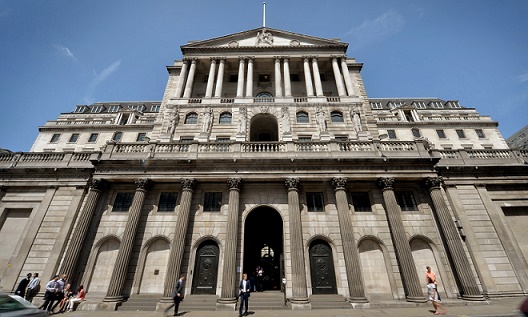UK is entering a phase of deep political uncertainty as economic crunch makes way for constitutional turmoil. UK business investments have dropped at steepest rate in past 6 years in response to plunging global oil prices. The investments fell by 1.4% in 4Q14, the biggest fall since 2009 financial crisis. However, this decline is likely to reflect withdrawal of new investment plans in oil sector. Moreover, the latest GDP figures did not raise questions over the strength and sustainability of UK’s recovering economy. Nevertheless, recovery of this economy is largely reliant on consumers.
In order to get secured with a sustainable future, the UK economy must shift from its high dependency upon debt-fuelled consumer spending and focus towards manufacturing and exports. However, failing banking systems have been a major factor that led the great financial crisis of 2008. British banking is struggling to clean the stain of negligence that has damaged the banking sector since 2008 financial meltdown.
In November 2014, six banks found guilty for currency rigging were fined $4.33 billion to global regulators, in order to settle their claims. These banks include Citibank, JP Morgan Chase, HSBC, RBS and UBS. The manipulations by some biggest banks in the world might shatter public confidence over banking system. British regulators said that around 36 banks including the five fined banks, operate in the foreign exchange market. It will be ensured that these banks participate in a program to transform their banking culture and make certain that management takes more responsibility.
After cutting thousands of jobs in the face of financial crisis and series of scandals across the sector, the London banking and financial sector is getting back on track, but the British banks are still distressed. The situation worsened further when Royal Bank of Scotland planned to slash 14000 jobs out of 18000 jobs from its investment banking section. At the same time, Barclays is also slashing nearly 7000 jobs over the next 3 years and is likely to cut jobs further after announcement of fines charged for manipulation of foreign currency market. The biggest worry for UK is Eurozone troubles particularly Greece’s exit.
Majority of the Greek’s debt is held by Eurozone and as London plays a major role in Europe’s financial sector, the Greek crisis will significantly affect UK’s economy as EU is chief export market for Britain. Eurozone being the most crucial trading partner for the UK, its economy is highly susceptible to Greek crisis.
It is expected that investment banking bonuses will stay relatively flat or little higher across the sector led by market rebound while on the other hand, bond and currency sections of banking are likely to witness low bonus particularly in the divisions where banks have been fined for misconduct.
UK government is gradually selling its stakes in Lloyds Banking Group with the aim to push Lloyds to private sector and get back taxpayers money. Royal Bank of Scotland led UK towards its biggest banking bailout. Further, UK government is also planning to sell its stake in Royal Bank of Scotland so as to repay the debt.
In order to get secured with a sustainable future, the UK economy must shift from its high dependency upon debt-fuelled consumer spending and focus towards manufacturing and exports. However, failing banking systems have been a major factor that led the great financial crisis of 2008. British banking is struggling to clean the stain of negligence that has damaged the banking sector since 2008 financial meltdown.
In November 2014, six banks found guilty for currency rigging were fined $4.33 billion to global regulators, in order to settle their claims. These banks include Citibank, JP Morgan Chase, HSBC, RBS and UBS. The manipulations by some biggest banks in the world might shatter public confidence over banking system. British regulators said that around 36 banks including the five fined banks, operate in the foreign exchange market. It will be ensured that these banks participate in a program to transform their banking culture and make certain that management takes more responsibility.
After cutting thousands of jobs in the face of financial crisis and series of scandals across the sector, the London banking and financial sector is getting back on track, but the British banks are still distressed. The situation worsened further when Royal Bank of Scotland planned to slash 14000 jobs out of 18000 jobs from its investment banking section. At the same time, Barclays is also slashing nearly 7000 jobs over the next 3 years and is likely to cut jobs further after announcement of fines charged for manipulation of foreign currency market. The biggest worry for UK is Eurozone troubles particularly Greece’s exit.
Majority of the Greek’s debt is held by Eurozone and as London plays a major role in Europe’s financial sector, the Greek crisis will significantly affect UK’s economy as EU is chief export market for Britain. Eurozone being the most crucial trading partner for the UK, its economy is highly susceptible to Greek crisis.
It is expected that investment banking bonuses will stay relatively flat or little higher across the sector led by market rebound while on the other hand, bond and currency sections of banking are likely to witness low bonus particularly in the divisions where banks have been fined for misconduct.
UK government is gradually selling its stakes in Lloyds Banking Group with the aim to push Lloyds to private sector and get back taxpayers money. Royal Bank of Scotland led UK towards its biggest banking bailout. Further, UK government is also planning to sell its stake in Royal Bank of Scotland so as to repay the debt.





